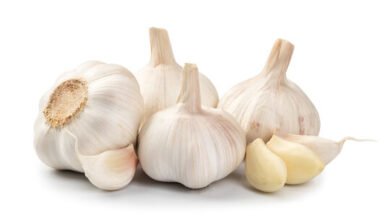Natural Remedies for Anxiety & Stress Relief
Discover natural remedies for anxiety and stress relief with herbs, mindfulness, and lifestyle tips to restore calm and balance naturally

In an era where anxiety and stress have become pervasive challenges, natural remedies for anxiety and stress relief offer a holistic and accessible approach to mental wellness. Modern life, with its relentless demands and uncertainties, has left many seeking alternatives to pharmaceutical interventions, which often come with side effects or dependency risks. Natural remedies, rooted in centuries-old traditions and supported by growing scientific evidence, provide a gentler yet effective path to managing emotional turbulence. This article explores a wide array of natural strategies—from herbal supplements to mindful practices—that can help restore balance to the mind and body, empowering individuals to take charge of their mental health.
The appeal of natural solutions lies in their ability to address the root causes of stress anxiety rather than merely masking symptoms. By integrating lifestyle adjustments, dietary changes, and mindfulness techniques, individuals can cultivate resilience against life’s pressures. Below, we delve into the science and practical application of these remedies, offering a roadmap for those eager to explore non-pharmaceutical avenues for tranquility.
Herbal Remedies: Nature’s Calming Agents
Herbal medicine has long been a cornerstone of natural anxiety relief. Chamomile, often consumed as a tea, contains apigenin, an antioxidant that binds to brain receptors, reducing insomnia and promoting relaxation. Clinical studies, including a landmark trial published in the Journal of Clinical Psychopharmacology, found that participants with generalized anxiety disorder (GAD) experienced significant symptom reduction after eight weeks of chamomile extract use. Similarly, lavender, whether inhaled as essential oil or taken in capsule form, has been shown to lower cortisol levels and mitigate nervousness anxiety. A 2010 study in Phytomedicine highlighted lavender’s efficacy comparable to benzodiazepines, minus the sedative side effects.
Ashwagandha, an adaptogen from Ayurvedic medicine, helps the body adapt to stress by regulating cortisol production. Research in Medicine journal revealed that adults taking 600 mg of ashwagandha root extract daily reported a 69% reduction in anxiety over eight weeks. Valerian root, another herbal ally, enhances GABA (a neurotransmitter that calms neural activity), making it useful for stress-induced insomnia. Lemon balm, with its mild sedative properties, can be brewed into tea or combined with other herbs like passionflower for synergistic effects. While generally safe, consulting a healthcare provider is crucial, especially for those on medications, to avoid interactions.
Lifestyle Adjustments: Building a Stress-Resistant Routine
Physical activity is a potent stress reliever, triggering endorphin release and lowering cortisol. Aerobic exercises like jogging or swimming, practiced for 30 minutes daily, improve mood by increasing serotonin production. Yoga, blending movement with breathwork anxiety, is particularly effective; a 2017 Harvard study found that twice-weekly yoga sessions reduced anxiety scores by 36%. Prioritizing sleep hygiene—maintaining a cool, dark room and avoiding screens before bed—supports the body’s stress recovery. Exposure to nature, or “forest bathing,” lowers blood pressure and enhances emotional well-being, as shown in a 2019 Environmental Health and Preventive Medicine study.
Social connection also plays a pivotal role. Engaging in community activities or simply confiding in a friend activates the brain’s “tend-and-befriend” response, counteracting fight-or-flight impulses. Even small rituals, like morning walks or journaling, can anchor the mind, fostering stability amid chaos.
Mind-Body Practices: Harnessing Inner Peace
Meditation, particularly mindfulness-based stress reduction (MBSR), rewires the brain to respond calmly to stressors. Regular practitioners show decreased amygdala activity (the brain’s fear center) and thickened prefrontal cortices, enhancing emotional regulation. Tai chi and qigong, with their slow, deliberate movements, improve mental clarity and reduce tension headaches. Breathing techniques, such as the 4-7-8 method (inhale for 4 seconds, hold for 7, exhale for 8), activate the parasympathetic nervous system, inducing calm within minutes.
Dietary Strategies: Nourishing the Nervous System
The food we consume plays a pivotal role in regulating our mood and stress levels, making dietary strategies a cornerstone of natural anxiety and stress relief. A well-balanced diet rich in nutrients supports the nervous system, helping to stabilize emotions and enhance resilience. Omega-3 fatty acids, found in fatty fish like salmon, walnuts, and flaxseeds, are particularly beneficial for brain health. These healthy fats reduce inflammation and promote the production of neurotransmitters like serotonin, which is essential for mood regulation. Similarly, magnesium-rich foods such as spinach, almonds, and dark chocolate help relax muscles and calm the nervous system, making them invaluable for stress management. Incorporating probiotic-rich foods like yogurt, kefir, and fermented vegetables also supports gut health, which is closely linked to mental well-being through the gut-brain axis.
Essential Oils and Aromatherapy: Scent-Sational Relief
Essential oils and aromatherapy have long been celebrated for their ability to soothe the mind and body, offering a natural and sensory-rich approach to anxiety and stress relief. Extracted from plants, these concentrated oils capture the essence of their source, delivering potent therapeutic benefits through inhalation or topical application. Lavender, for instance, is renowned for its calming properties, with studies showing it can reduce cortisol levels and promote relaxation. Similarly, bergamot oil, derived from citrus fruit, has been found to uplift mood and alleviate stress when diffused or applied to the skin. Frankincense, often used in meditation practices, helps deepen breathing and quiet the mind, making it a valuable tool for those seeking emotional balance. By engaging the olfactory system, essential oils can directly influence the brain’s limbic system, which governs emotions, making them a powerful ally in managing stress.
The versatility of essential oils allows them to be incorporated into daily routines in various ways. Diffusing oils like chamomile or ylang-ylang in the home creates a serene atmosphere, while adding a few drops to a warm bath can transform it into a relaxing retreat. For on-the-go relief, applying diluted oils to pulse points, such as the wrists or temples, provides quick access to their calming effects. Blending oils, such as combining lavender with peppermint, can enhance their benefits, offering a personalized aromatherapy experience. However, it’s important to use high-quality, pure essential oils and dilute them properly to avoid skin irritation. With their ability to engage the senses and promote relaxation, essential oils and aromatherapy offer a simple yet profound way to combat stress and anxiety naturally.
Read More: Holistic Approaches: 13 Natural Remedies for Anxiety Relief
Conclusion
Natural remedies for anxiety and stress relief offer a holistic and empowering approach to managing the emotional challenges of modern life. By integrating herbal remedies, mindful practices, dietary adjustments, and lifestyle changes, individuals can address the root causes of stress rather than merely alleviating symptoms. These methods, rooted in both ancient traditions and modern scientific research, provide a gentle yet effective way to restore balance to the mind and body. Whether it’s through the calming effects of chamomile tea, the grounding practice of yoga, or the soothing scent of lavender oil, these natural solutions empower individuals to take control of their mental well-being in a sustainable and nurturing way.
However, it’s important to approach natural remedies with mindfulness and caution. While they are generally safe, they may not be suitable for everyone, particularly those with severe anxiety or underlying health conditions. Consulting a healthcare professional before starting any new regimen ensures safety and effectiveness. Ultimately, the journey to stress relief is deeply personal, and finding the right combination of remedies requires patience and self-awareness. By embracing these natural strategies, individuals can cultivate resilience, inner peace, and a greater sense of harmony in their lives, even amidst life’s inevitable challenges.
FAQs
Are natural remedies safe for everyone?
While generally safe, some herbs may interact with medications or affect pre-existing conditions. Pregnant women and those with chronic illnesses should consult a doctor before use.
How long do natural remedies take to work?
Effects vary: herbs like lavender may work within hours, while adaptogens like ashwagandha might take weeks. Consistency is crucial.
Can these remedies replace prescription medication?
Not necessarily. They can complement treatment, but consult a healthcare provider before making changes to prescribed regimens.
Do natural remedies have side effects?
Mild effects like drowsiness or digestive upset may occur. Start with low doses to assess tolerance.
How do I choose the right remedy?
Consider lifestyle, stress triggers, and preferences. Trial and error, guided by research or a naturopath, helps identify what works best.











